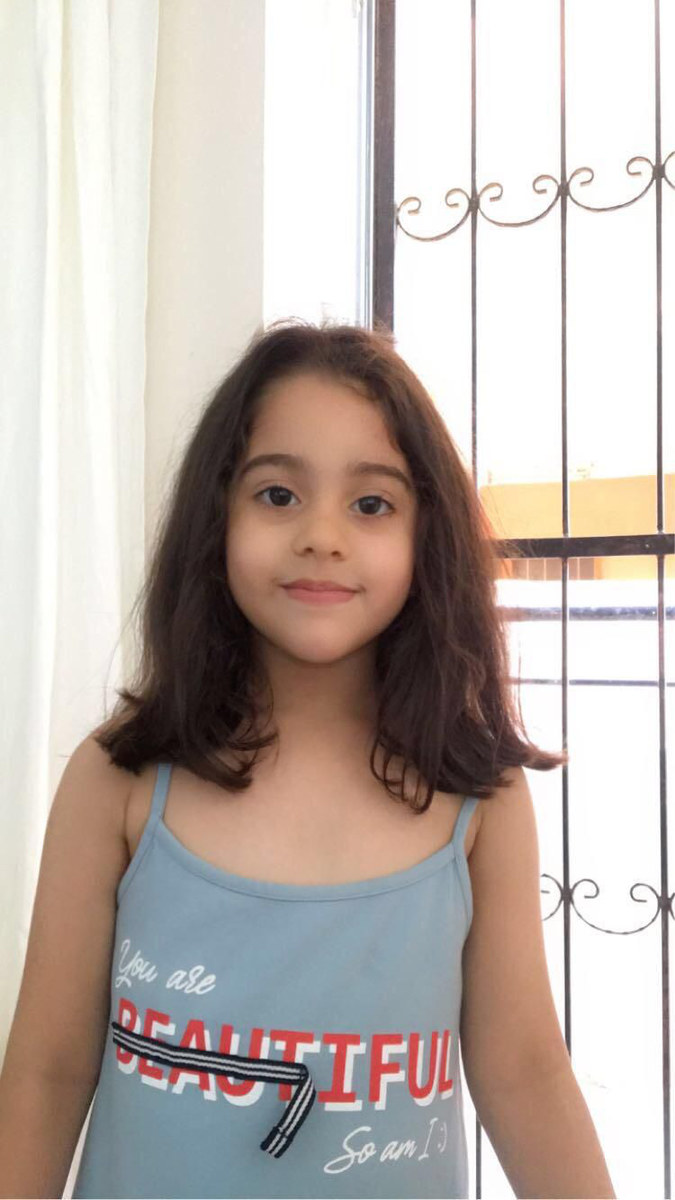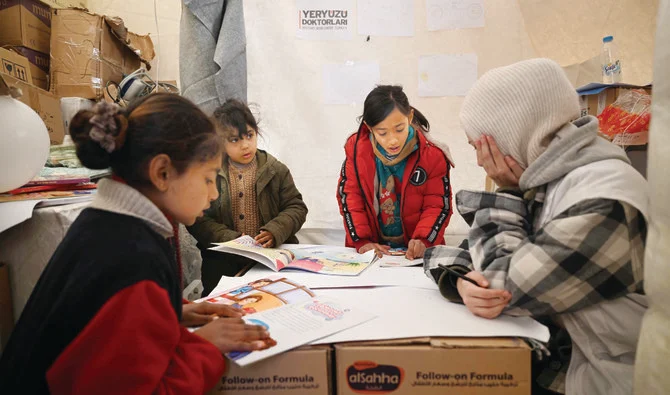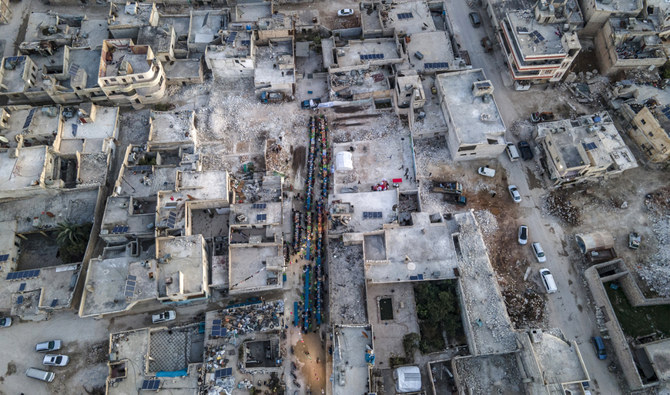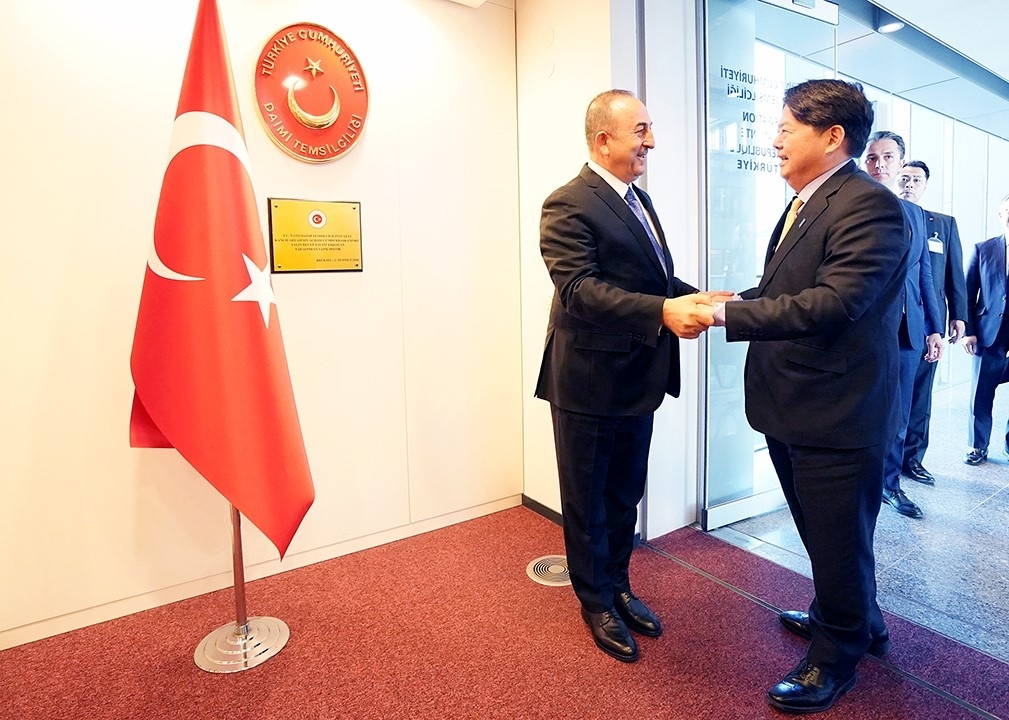ANKARA: Neval Akgol was woken early on Monday by a violent earthquake. Her mother and father rushed into her room, and they immediately left their apartment.
But while evacuating the building via the stairs, a heavy water tank fell over Neval and her father.
Her father’s arm was broken, and Neval sustained a serious head injury.
Her mother was trapped under the wreckage of the building, which had completely collapsed. They were rescued hours later.
Neval somehow managed to leave the building, and was taken by some neighbors towards a nearby hospital. But they handed her over to an ambulance driver they met en route, believing it the best option, and giving her name and details.
That was the last the Akgol family heard of their only daughter.

“People began mocking with our pain. They are sending us fake information about the whereabouts of Neval. It drains our energy and hopes,” Neval’s cousin, Emre, told Arab News.
So far since the earthquakes that struck Turkiye last week, around 225 children have been reported missing, with 42 subsequently found, and 69 identified as having died in hospital.
Due to many families being trapped and separated for days, some parents lost contact with children if they were saved before them.
Some of the children are unable to communicate with the authorities because of the trauma they have suffered, while some of them are babies, with no identity information on their clothes or means of communicating.
Social media accounts in Turkiye are full of emotional posts showing missing children’s photos, giving details about where they were rescued and last seen.
After a days-long search effort with authorities and through social media channels, one lawyer in Hatay found his infant son, Suleyman, who was rescued by another citizen who had found the baby in the wreckage of a building.
Under normal conditions, a social worker is responsible for taking care of each child who is hospitalized or found in the wreckage, and of putting a tag on their bed, including the name, family details and information about the whereabouts of the rescue operation.
But, as so many public officials were also trapped during the quake, there is chaos and disorder in the region’s various bureaucracies.
Another aspect of the story is the situation of some Syrian refugee children, mostly concentrated in Hatay
Families are searching hospitals and mortuaries around the earthquake zone for any sign of missing children, and efforts to track minors down has been complicated by a number of unaccompanied children from the quake zone reportedly being taken to dozens of cities outside the area for safety, including Istanbul, Ankara, Kayseri, Samsun and Zonguldak.
On Friday, Turkiye’s science and research agency TUBITAK developed a new program, named Bilen Goz, to match photos of missing children with pictures of those who were found in different hospitals across the country.
The system contains information about the locations where children were rescued, their photos and family details, and is usable only by government officials and police.
Those who contact the authorities in search of missing children will be required to prove their links to the child in question.
Following the deadly 1999 earthquake that struck Turkiye’s northwestern region and caused about 18,000 deaths, several children went missing and still have not have been found.
Some of them were reportedly taken from the disaster area by fake ambulances, with stories abounding about the involvement of international adoption networks, child traffickers and even the illicit organ trade.
There is currently no information about deceased children buried with no identification or DNA samples taken. Data about the distribution of unidentified and unaccompanied children across the country’s hospitals is also not disclosed publicly.
Since last Monday’s 7.8-magnitude earthquake, 36,217 people have been reported dead, with about 31,643 of those in Turkiye.
Hatice Kapusuz, from Turkiye’s Disaster Child Civil Coordination Team, said establishing a centralized system, such as the one used to reunite families with over 5,000 lost children in the aftermath of Hurricane Katrina in the US in 2005, was of the utmost importance for Turkiye.
“All data taken from different hospitals at different cities should be compiled in a common database and there should be social workers and nurses responsible of managing the communication channels between the families and the children,” she told Arab News.
“But now, families have to travel in all cities and in all hospitals, including mortuaries and intensive care units, to find their little ones because they cannot reach any centralized database,” Kapusuz.
Given the urgency of the matter, a short-term national consultancy post was opened by UNICEF for the situational analysis on missing children in Turkiye.
Meanwhile a number of international search and rescue teams, including from Europe and Israel, have begun to leave Turkiye, though about 4,500 search and rescue operations, with the involvement of some 34,700 people, are continuing in the disaster zone.
A seventh Saudi Arabian relief plane arrived over the weekend to assist victims in the region, carrying medical aid and equipment worth more than $9.6 million.
The Kingdom also sent several rescue teams last week.
Hatay Airport — a key channel for aid deliveries and evacuations — has reopened after damages were repaired.
After a phone call with Turkish President Recep Tayyip Erdogan, European Commission President Ursula von der Leyen pledged to provide additional support to Turkiye, especially heaters, blankets and tents.
A donors’ conference will also be organized in March in Brussels to mobilize international funds.






















